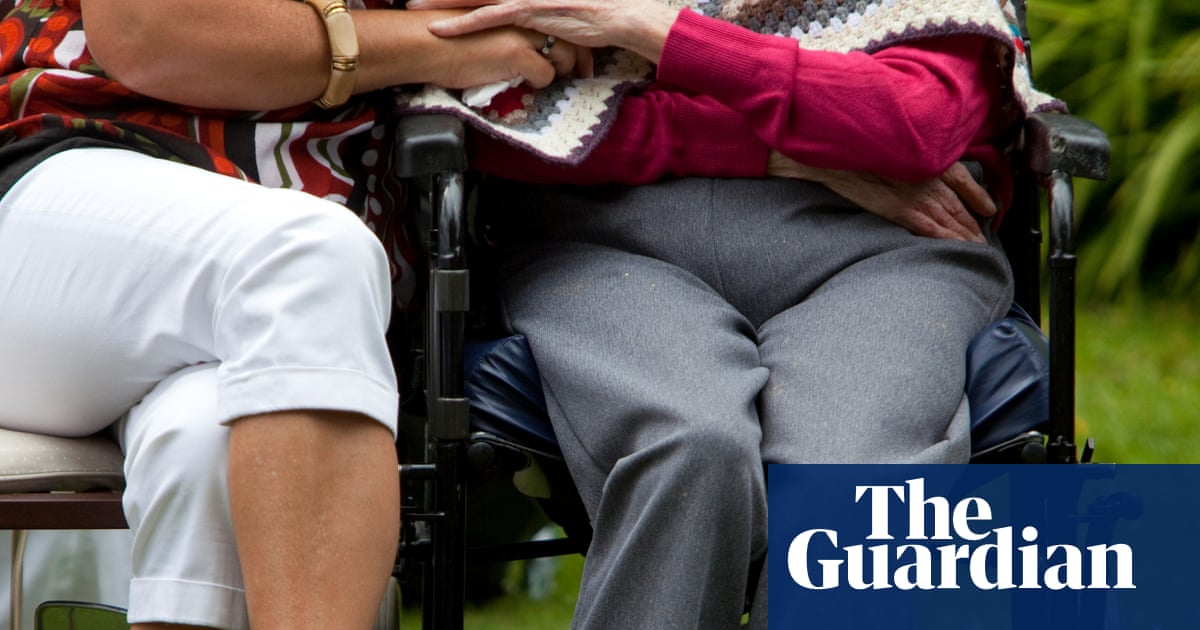
Government officials have been accused of using “threatening and cruel” tactics towards unpaid carers by saying they could face even greater financial penalties if they appeal against “vindictive” benefit fines.
This month a Guardian investigation revealed that thousands of people who look after disabled, frail or ill relatives have been forced to pay back huge sums after being chased by the Department for Work and Pensions (DWP) over “honest mistakes” that officials could have spotted years earlier.
Dozens of unpaid carers have said they feel powerless to challenge the penalties, which often run into many thousands of pounds, even when the government is at fault.
Now the Guardian has learned that the DWP is warning carers that their fine may increase if they appeal against a repayment order.
In one letter in June 2023, the government department said that if the unpaid carer challenged the order “the entire claim from the date it started will be looked at, which could potentially result in the overpayment increasing, if there are more periods where your earnings exceeded the allowable limits”.
This carer, whose husband has dementia and Parkinson’s, had been ordered to repay nearly £4,000 for unwittingly exceeding the weekly earnings threshold of £151 by calculating her zero-hours job on a monthly basis – as she believed the rules required – rather than on a four-weekly basis.
The former council worker said the penalty had “destroyed” her confidence and left her feeling unable to challenge the DWP. “I can’t afford this bill but I can’t afford to argue with them because if I do I’ve made these mistakes already, chances are I’ve made other mistakes,” she said.
Cristina Odone, head of family policy at the centre-right thinktank the Centre for Social Justice, described the DWP tactic as “threatening and incredibly cruel”.
She said: “Again and again, if you talk to ordinary people, the DWP raises their hackles and their fears because it is the state possibly coming to claw back benefits.
“It is the most hostile bit of the state for so many people. This just confirms their wariness of the DWP as the bit of government that is the least sympathetic, most faceless and most heartless.”
Unpaid carers are entitled to a carer’s allowance of £81.90 a week – the smallest benefit of its kind – providing they care for someone for at least 35 hours a week. They are allowed to work but must not make more than £151 a week after tax and expenses.
People who make more than the £151 weekly limit, even as little as 1p more, must pay back the entire week’s carer’s allowance for the whole period in which they were in breach of the rules, in what has been described as a “cliff edge” approach.
Tens of thousands of carers have unwittingly fallen foul of this rule and have not been alerted by the DWP until years later, even though the government has real-time technology that means it can spot and stop these infractions much sooner.
Carers have been plunged into debt, forced to sell their homes and given criminal records over what they say were “honest mistakes” that should have been spotted much sooner by the DWP.
Three former work and pensions secretaries, including Iain Duncan Smith, have called on the government to pause investigations into unpaid carers and launch a review of its failings. Debbie Abrahams, a Labour MP on the Commons work and pensions committee, has called the DWP’s approach “simply vindictive”.
Jolyon Maugham, director of the Good Law Project, a campaign group supporting unpaid carers, said the DWP’s attempt to dissuade people against appealing was “quite troubling and quite unsavoury”.
Maugham said: “Parliament has set up an appellant system to enable appeals against demands that people repay carer’s allowance. For the DWP to take steps to discourage people from using this very important safeguard is itself quite troubling.”
Emily Holzhausen, director of policy at Carers UK, said unpaid carers feel “stuck in a place where they feel unable to challenge decisions – even though they have a legal right to do so”.
The DWP said: “Carers across the UK are unsung heroes who make a huge difference to someone else’s life and we have increased carer’s allowance by almost £1,500 since 2010.
“We have safeguards in place for managing repayments, that’s why visiting officers are available to provide support and assistance to customers when attending their homes, particularly for those deemed vulnerable.
“Claimants have a responsibility to inform DWP of any changes in their circumstances that could impact their award, and it is right that we recover taxpayers’ money when this has not occurred.”












